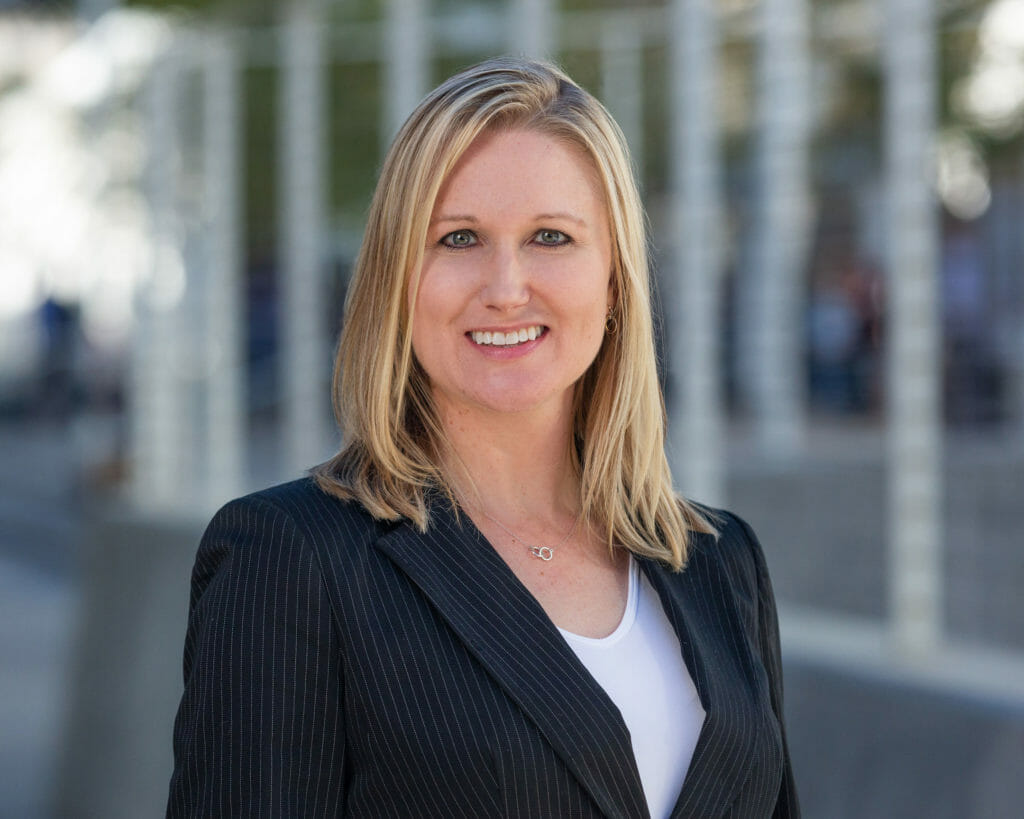Katherine Sauer, PhD is Vice President, Research and Programs for National Endowment for Financial Education (NEFE). She oversees educational programs, as well as research and strategic impact at a national nonprofit devoted to financial capability. In addition to financial health, she is also passionate about mental and physical health. Learn more about her balanced approach to both work and life.
AFCPE: What inspired you to enter this field?
Katherine: I’ve been an economist since I was a small child—I weighed the costs and benefits of just about everything. I’ve always thought about the world in terms of trade-offs, incentives, constraints, and unintended consequences. To me, personal finance is an applied version of the economic way of thinking. My doctorate is in economics and I spent the better part of a decade as a professor. During that time, I became heavily involved in professional development for K-12 teachers in the area of economics and personal financial literacy. I designed and implemented holistic workplace financial wellness for three years, and I also did a brief stint in retirement plan investment consulting.
AFCPE: Tell us about your work with NEFE? What project or initiative has you most excited?
Katherine: As we are emerging from six months of strategic planning, I’ve got my sights set on two goals. First, refine our Personal Finance Ecosystem framework—which we released in April—and getting it in the hands of as many people in the field as possible. We are still collecting feedback on it so please feel free to reach out. And second, translate academic research into digestible bites that are actionable by practitioners and useful to nonprofits needing research citations to support their programming and grant-seeking efforts.
AFCPE: Both NEFE and AFCPE are passionate about the value of research in the field. From your perspective, how important is it that we continue to bridge the gap between research and practice?
Katherine: While the main function of research is to expand human knowledge about the world, for maximum impact on society, it is critical to turn it into something useable for practitioners. Translating scholarly work is one aspect. Another is to hear from practitioners what they want to know and to make sure those questions are answered by researchers. In some cases, a practitioner and researcher might work directly together on a project. AFCPE and NEFE can work together to support those connections.
AFCPE: In addition to financial health, you also have a passion for mental and physical health – which is evident by your creative social handle, the @yogiconomist! Tell us how this passion emerged and how you combine all aspects of health into your work and life.
Katherine: I love to learn and I love to better myself. I’m highly driven and that used to mean being stressed out all the time and working way too hard. I wanted to have a more balanced life. Yoga and meditation taught me mindfulness—to be present in the moment—and I enjoyed the physical and mental aspects so much I became a certified instructor. I suffered from insomnia most of my life and finally got my sleep hygiene under control around 2013. Cleaning up my diet led me to become a nutritionist. It turns out, with a healthy mind-body balance, I’m even more productive than ever and my stress is in check.
Katherine answers the Friday 5:
- My Why: If you have knowledge, let others light their candle by it. I’m an educator to my core and since I have expertise, I’m compelled to share it.
- My Favorite Quote: There are three aphorisms I like, and I just realized they are all variations of the same theme: The victory is in the preparation. Morning begins at night. Expect the unexpected.
- My Hero: Different people capture my attention at different points in time. In deflection, I’ll offer two books that have influenced me, that I periodically re-read: Getting Things Done by David Allen; and Eastern Body, Western Mind by Anoedea Judith.
- Your Favorite Personal Finance Resource: How can I choose just one? I guess right now I’ll highlight NEFE’s LifeValues Quiz. It’s free (of course), only 20 questions, and is useful for anyone who wants to understand their underlying behavioral relationship to spending. It’s also a great conversation starter for couples that disagree about household finances. There are supporting materials for practitioners as well.
5. Your Best Advice:
- For someone starting the journey to financial well-being: Engaging with your finances can feel overwhelming at times—there is so much to do initially and maintenance must be performed over time. I recommend “time boxing” tasks. That is, set a timer for say 20 minutes and do what you can in that timeframe (e.g., request a credit report, reconcile your bank transactions, go online to find a form you’ve been meaning to download, etc.), and then stop. If you have momentum, keep going. If you don’t, then be proud of yourself for what you did. Then commit to 20 minutes the next day and so on. Consistency in engaging with your finances is the key. Actually, you’d be surprised what you can get done in just 20 minutes.
- For a new professional entering the field: Don’t reinvent the wheel. Whether it is programming and resources, figuring out how to set up your first LLC, or embarking on a new research agenda, there is a wealth of knowledge and information in our collective network for you to build from. Stand on the shoulders of giants.
Follow Katherine at:
Twitter and Instagram: @yogiconomist

Leave a Reply